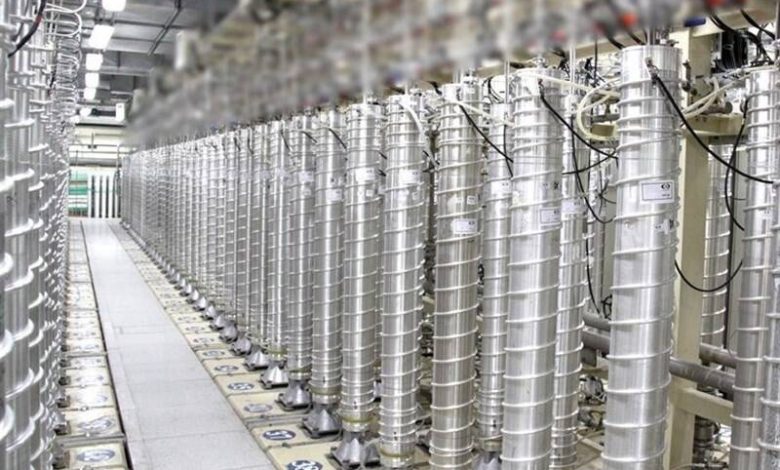Complete the IAEA Probe to Stop Iran’s Deception

Written by
Alejo Vidal Quadras
Iran’s regime nuclear ambition and IAEA report
Iran: Fordow enrichment facilities
By: Alejo Vidal-Quadras
Competing narratives persist regarding efforts to restore the 2015 Iran nuclear deal or Joint Comprehensive Plan of Action. When negotiations briefly resumed with that aim earlier this month, they were widely described as the last-ditch attempt to resolve outstanding differences between the Iranian regime and the deal’s four Western signatories – the United States, Britain, France, and Germany. However, reports in Iranian state media and statements from Iranian officials soon began to suggest that success in those negotiations would only lead to more of the same as Tehran continued to push for additional concessions.
The Western signatories all appear to have ruled those concessions out, but after all, American and European officials set informal deadlines for the nuclear talks as early as the end of last year, yet they have proven continually unwilling to walk away from the process and adopt a new strategy for containing Iran’s progress toward a nuclear weapon.
This slavish devotion to the Vienna nuclear talks is indefensible, not just because of the Iranian regime’s current refusal to adopt the “final” draft text but also because of recurring obstructions and unworkable negotiating positions over the course of eighteen months.
Negotiators return to capitals as latest Iran nuclear talks end in Vienna
Last June, those talks were put on pause following the appointment of Iran’s new, ultra-hardline president, Ebrahim Raisi, who avoided sending negotiators back to Vienna until November, then directed them to convey even more outsized demands than they had been pushing before they returned to Tehran. Predictably, the talks’ resumption at that point led to little further progress.
From March until the end of June, when two days of talks were suddenly held in Doha, the Iranian regime maintained that it would only send negotiators back to Vienna to conclude an agreement based on Iranian demands, some of which had been rejected outright, in public by the other parties.
Among those demands was the removal of the Islamic Revolutionary Guard Corps from the US State Department’s list of foreign terrorist organizations. Signs of openness to that concession led to serious backlash from members of both political parties in the US, and the White House ultimately ruled it out. Meanwhile, other observers and participants in the negotiating process emphasized that any issues relating to the IRGC are irrelevant to the 2015 nuclear deal and thus have no place in an agreement to restore it.
Many of the latest reports suggest that the central obstacle to the restoration of the JCPOA is now the regime’s demand that the International Atomic Energy Agency close a probe into the possible military dimensions of Iran’s prior nuclear work.
New round of Iran nuclear talks amidst high tensions
This must be ruled out as conclusively as the IRGC delisting and for some of the same reasons. The IRGC’s close involvement in the nuclear program is reflected in a strong IRGC presence on the Iranian team tasked with answering the IAEA’s inquiries. Iran’s vicious paramilitary has a vested interest in keeping the international community in the dark, and closure of the IAEA probe would allow it to do just that.
Tehran continues to protest that it has provided the UN nuclear agency with all the answers it has requested, but multiple IAEA reports have explained that those answers are all either incomplete or incredible. The regime has still failed to account for the presence of nuclear material at four undeclared sites that became known to the international community only after the signing of the JCPOA. With each successive act of obstruction, it becomes more obvious that Iranian officials fear the consequences of providing clarity on this issue and will never do so voluntarily.
In all likelihood, a proper conclusion to the IAEA probe would only prove what the NCRI has long argued: that Iran’s nuclear weapons program was not suspended in 2003 as international media often report but remains active to this day, with considerable direction from the IRGC. And if that is the case, it will also prove that the JCPOA’s detractors were correct in thinking that its terms w

ere insufficient to halt the regime’s progress toward “breakout”.
Whether or not Tehran ever comes clean, it should be clear that a new approach to that problem is needed. Since the regime refuses to negotiate in good faith and is clearly trying to draw out the current process indefinitely, that new approach should be adopted immediately by all of the JCPOA’s Western signatories and by the Western world more generally.
The first step toward that outcome is the re-imposition of all relevant UN Security Council resolutions and all European Union sanctions targeting Iran’s nuclear program. As we know, this can be all accomplished automatically by formally acknowledging that Iran is out of compliance with the JCPOA and invoking the agreement’s “snapback” provisions. Once full-scale pressure is returned to the Iranian regime, the US and the EU can set to work demanding the regime’s compliance with the IAEA probe so as to finally complete that vital and formerly overlooked the first step toward truly containing the regime’s nuclear weapons program.
Alejo Vidal-Quadras, a Spanish professor of atomic and nuclear physics, was vice-president of the European Parliament from 1999 to 2014. He is currently president of the Brussels- based International Committee in Search of Justice (ISJ)

